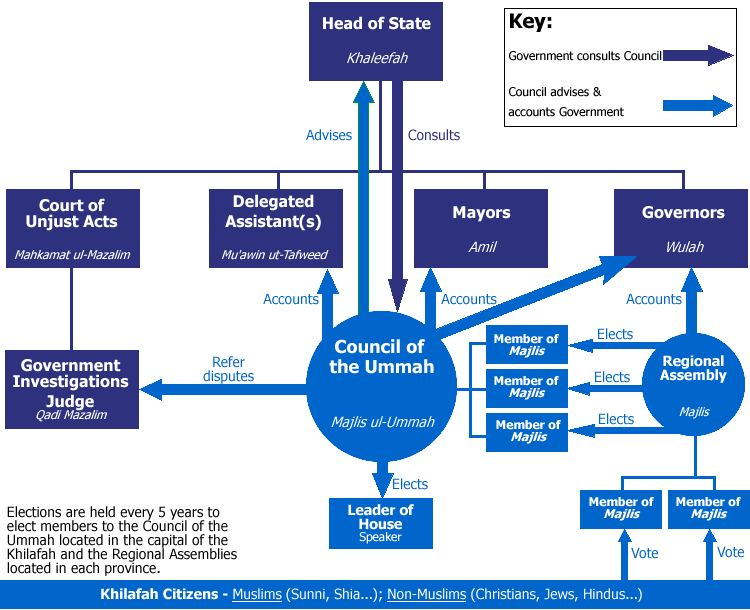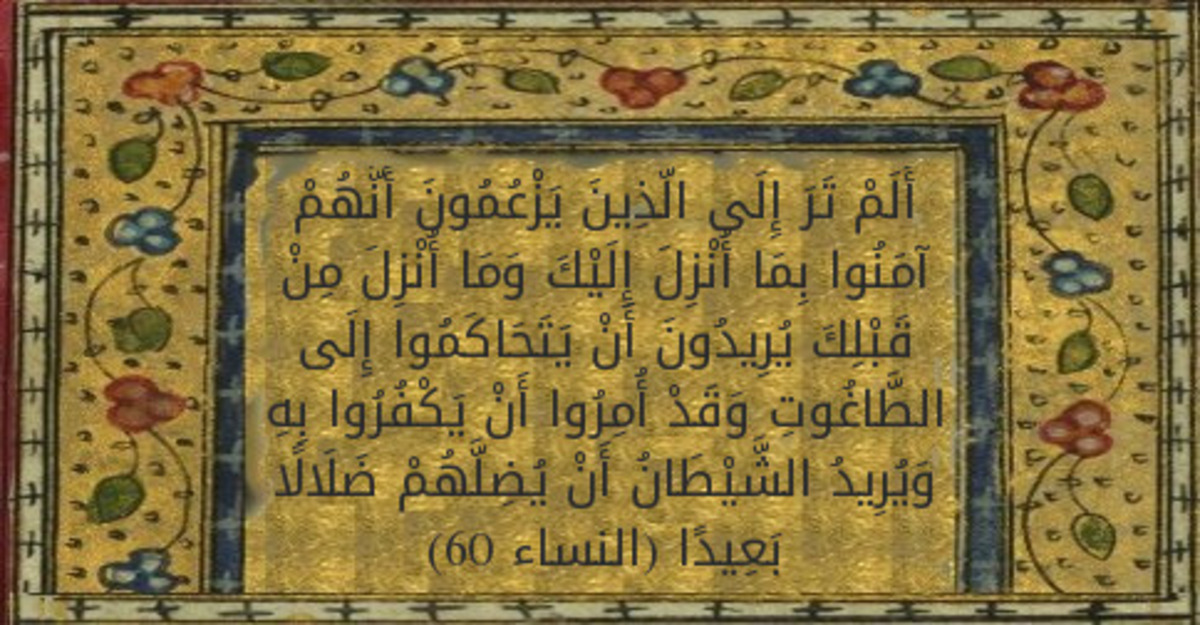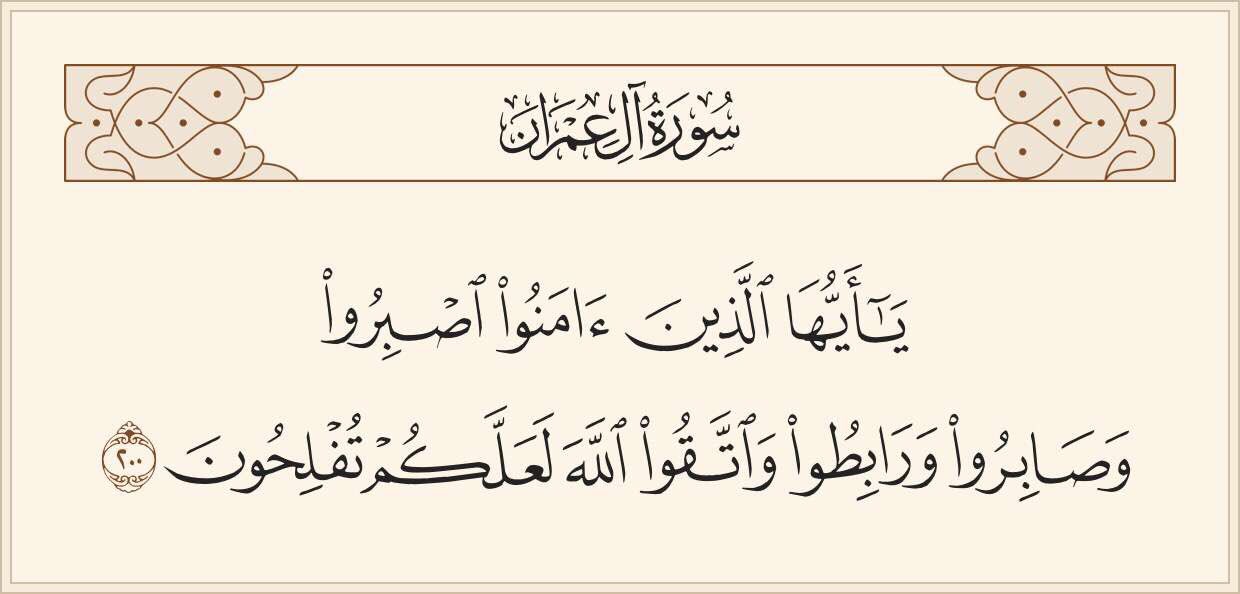The Role of the Elected Representatives in the Khilafah
بسم الله الرحمن الرحيم

26 Ramadhan
The Role of the Elected Representatives in the Khilafah
Shari‘ah has granted permission to choose representatives for taking care of the affairs of the Muslims. RasulAllah (saaw) said on the occasion of the Second Bayah of Aqabah:
أَخْرِجُوا إلَيّ مِنْكُمْ اثْنَيْ عَشَرَ نَقِيبًا، لِيَكُونُوا عَلَى قَوْمِهِمْ بِمَا فِيهِمْ
“Bring out to me twelve leaders that they may take charge of their people’s affairs.”
In the Khilafah, the Majlis of the Ummah’s representatives are elected, not appointed by the Khaleefah. Like the Khaleefah, the Majlis cannot decide what is right and wrong, because Sovereignty is for the Shari’ah. Rather the Majlis firmly accounts the Khaleefah and provides consultation in the looking after the affairs of the people. The Khaleefah goes to the Majlis of the Ummah for consultation regarding the affairs of the people. However, this consultation can never make the halal, haram or the haram, halal. Hence in the Khilafah, consultation cannot be made for implementing General Sales Tax or privatizing energy assets, as they are haram in Islam. Similarly, there will be no consultation over matters which are obliged in Islam, such as sending armed forces to liberate Muslim occupied lands or making the Aqeedah of Islam the basis of education or unifying all Muslim countries as one Khilafah state.
Hizb ut Tahrir/ Wilayah Pakistan
بسم اللہ الرحمن الرحیم
26 رمضان
خلافت میں عوامی نمائندوں کا کردار
شریعت نے مسلمانوں کے امور کے لیے نمائندوں کے انتخاب کی اجازت دی ہے۔ رسول اللہ انے بیعتِ عقبہ ثانیہ کے موقع پر انصار سے فرمایا:
أَخْرِجُوا إلَيّ مِنْكُمْ اثْنَيْ عَشَرَ نَقِيبًا، لِيَكُونُوا عَلَى قَوْمِهِمْ بِمَا فِيهِمْ
“اپنے میں سے بارہ سردار منتخب کرو جو اپنے لوگوں کے امور میں ان کے نمائندہ ہوں”
(ابن ہشام نے کعب بن مالک سے روایت کیا)
خلافت کی مجلس اُمت میں موجود نمائندے عوام کے منتخب کردہ ہوتے ہیں اور یہ نامزد کردہ نہیں ہوتے۔ تاہم مجلسِ اُمت کا کام حکمرانی کرنا نہیں ہوتا اور خلیفہ کی مانند مجلسِ امت کو بھی قانون سازی کا اختیار حاصل نہیں ہوتا۔ بلکہ اس کا کام خلیفہ کا کڑا محاسبہ کرنا اور لوگوں کے امورکی دیکھ بھال میں خلیفہ کو مشورہ دینا ہوتا ہے۔ خلیفہ لوگوں کے امور کی دیکھ بھال میں مشورے کے لیے مجلسِ امت کی طرف رجوع کرتا ہے تاہم یہ مشورہ کسی حلال کو حرام بنانے یا ایک حرام امر کو حلال بنانے کے لیے نہیں کیا جاسکتا۔ پس خلافت میں جنرل سیلز ٹیکس کے نفاذ یا توانائی کے اداروں کی نج کاری پر کوئی مشورہ نہیں کیا جاسکتا کیونکہ اسلام پہلے ہی ان امور کو حرام قرار دے چکا ہے۔ اور نہ ہی یہ مشورہ مسلم مقبوضہ علاقوں کو آزاد کرانے کے لیے افواج کو بھیجنے یا نہ بھیجنے، تعلیم کے لیے اسلام کے عقیدہ کو بنیاد کے طور پر اختیار کرنے یا نہ کرنے یا مسلم ممالک کو خلافت میں ضم کرنے یا نہ کرنے کے متعلق ہو سکتا ہے کیونکہ یہ سب امور اسلام کی رُو سے فرض ہیں۔
حزب التحریر ولایہ پاکستان





